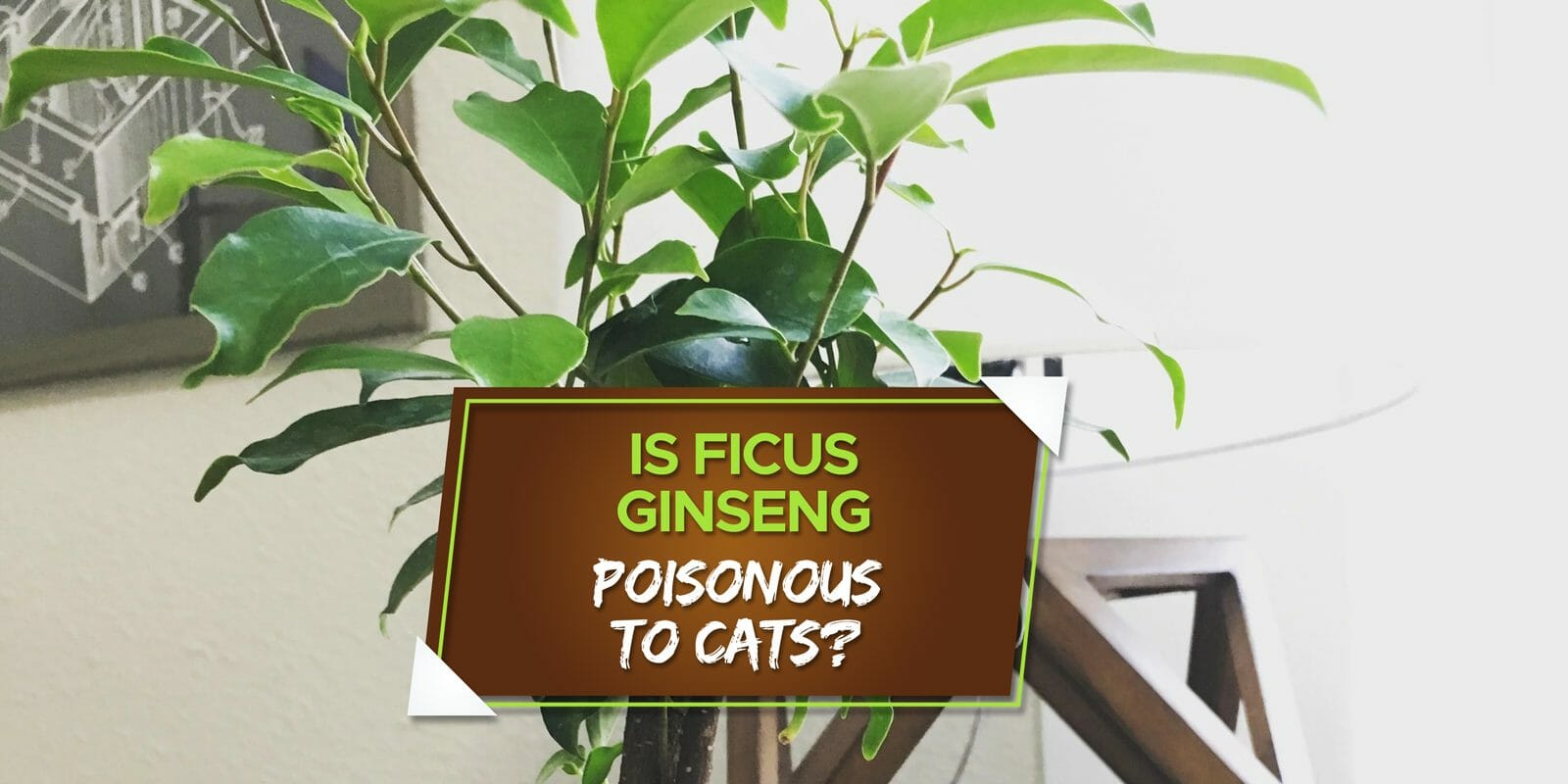Hey there, fellow cat-loving gardeners! If you’re a fan of the Ficus ginseng plant, you might be wondering if it’s safe to have around your feline friends. After all, we all want to ensure our gardens are beautiful and safe for our beloved pets.
Is ficus ginseng poisonous to cats? Well, the short answer is that yes, Ficus ginseng can be poisonous to cats. This is mainly due to the toxin ficusin present in the plant, which can irritate your cat’s mouth.
But don’t worry; we’ll go over all the details in this article so you can keep your garden and your cat happy and healthy.
So please sit back, relax, and let’s dive into the world of Ficus ginseng and cat safety.
Is Ficus Ginseng Toxic to Cats?
Regarding household plants and pets, it’s always important to be aware of any potential toxins that could harm our furry friends. So, is Ficus ginseng toxic to cats?
Plants can contain a variety of toxins that can be harmful to pets if ingested. These toxins can affect pets in different ways, depending on the type and amount of toxin consumed, as well as the size and health of the animal. Some plant toxins can cause mild digestive upset, while others can be much more serious and even life-threatening.
Ficus ginseng contains several toxins that can be harmful to cats if ingested. The most concerning toxin is ficusin, which can cause irritation and swelling of the mouth and tongue, difficulty swallowing, and vomiting. Ficus ginseng also contains saponins, which can cause digestive upset and diarrhea.
There have been several reported cases of cats becoming ill after ingesting Ficus ginseng plants. These incidents have sometimes resulted in serious illness and even death – but that is rare, so don’t panic!!
It’s important to note that not all cats will have the same reaction to Ficus ginseng poisoning, and the severity of symptoms can vary. However, it’s always better to be safe than sorry, and it’s always sensible to err on the side of caution when it comes to your cat’s health.
Symptoms of Ficus Ginseng Poisoning in Cats
If you think your cat has eaten, or even nibbled at a Ficus ginseng plant, it’s important to be aware of the possible poisoning symptoms. This can help you determine whether your cat needs immediate veterinary care.
Some of the most common symptoms of plant poisoning in cats are diarrhea, vomiting, loss of appetite, and general laziness. If any of these symptoms are happening and you suspect it may have ingested a potentially toxic plant, get onto a vet ASAP.
In the case of Ficus ginseng poisoning, there are a few specific symptoms to watch out for. These include irritation and swelling of the mouth and tongue, difficulty swallowing, and vomiting.
Again, If you see any of these symptoms or if you can see a bite mark out of your Ficus ginseng, it’s crucial to seek veterinary care as soon as possible. The sooner your cat receives treatment, the better!
What You Need to do if Your Cat Eats Ficus Ginseng
It is essential to seek veterinary care as soon as possible if your cat has ingested a Ficus ginseng plant, as some parts of the plant can be toxic to cats.
The symptoms of Ficus ginseng poisoning in cats can include vomiting, diarrhea, and loss of appetite. If left untreated, Ficus ginseng poisoning can be severe or even deadly.
It is always best to get your cat to a veterinarian so they can determine the appropriate course of treatment, or get in touch with the Pet Poison Helpline or ASPCA Poison Center.
- Pet Poison Helpline – USA, 24-hour hotline.
- ASPCA Poison Center – 1-888-426-4435
Preventing Your Cat From Eating Ficus Gensing
What would be absolutely ideal is ensuring your cat avoids eating ficus gensing in the first place!
Here are a few tips to prevent your cat from eating Ficus ginseng:
- Keep the plant out of your cat’s reach: Make sure the plant is placed in a location where your cat cannot access it. This may mean moving the plant to a high shelf or countertop or placing it behind a barrier your cat cannot jump over.
- Use a pet-proof container: If you have a curious cat, consider placing your Ficus ginseng plant in a container that your cat cannot open or access. This could be a covered pot or a container with a lock or latch.
- Use a bittering agent: You can apply products to your plant that will make it taste bitter, which may deter your cat from chewing on it.
- Alternative plants: Consider providing your cat with alternative plants that are safe for them to chew on, such as catnip or grass. This can help redirect your cat’s attention away from potentially harmful plants.
- Keep an eye on your cat: Regularly check on it and ensure they are not chewing on any plants that could be harmful to them. If you notice your cat chewing on a potentially toxic plant, remove the plant and seek veterinary care as needed.
Frequently Asked Questions:
Is a ficus tree poisonous to cats?
Yes, a ficus tree can be toxic to cats if ingested. The Ficus ginseng plant contains toxins such as saponins and terpenoids, which can cause irritation and swelling of the mouth and tongue, difficulty swallowing, and vomiting when ingested by cats.
Is ginseng ficus an indoor plant?
Yes, ginseng ficus is a popular indoor plant. It is often used to decorate homes and offices due to its attractive foliage and easy maintenance.
Conclusion
To sum up, Ficus ginseng can be poisonous to cats if ingested. Symptoms of Ficus ginseng poisoning in cats include vomiting, diarrhea, and loss of appetite.
See veterinary care if your cat has ingested any part of a Ficus ginseng plant.
To prevent your cat from eating Ficus ginseng, keep the plant out of reach, use a pet-proof container, apply a bittering agent, provide alternative plants, and regularly monitor your cat.
Be careful with Ficus Ginseng around! Cats are naturally inquisitive and want to be involved in everything, keep them away, and keep them safe!
Thanks for reading.



